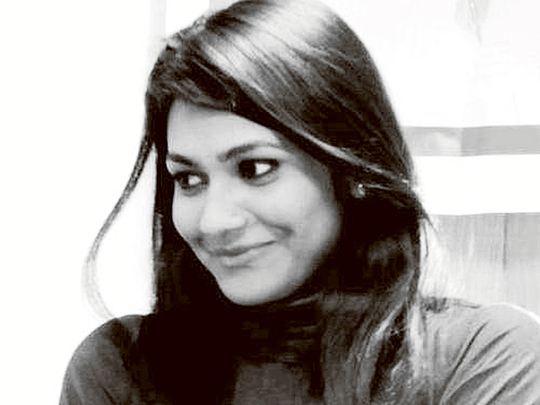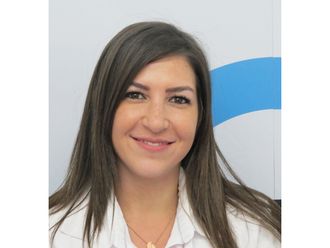
Fatima Lodhi is the founder and convener of Dark is Divine, a Pakistan-based campaign that raises awareness about colourism — the discrimination against people with dark skin tone, which is rampant in parts of South and Southeast Asia, Africa, Latin America and even the United States. It is an unspoken issue which impacts the lives of millions of people.
There are television advertisements for fairness products which target women, promising them better career and marriage prospects if they become “gora” (fair-skinned). Dark-skinned children often face playground teasing in schools, which is the result of the general societal attitude towards dark complexion.
Lodhi, who lives in Islamabad, recalls when she first launched the campaign in 2013. It was a very new concept for many. “People were shocked and they didn’t actually get the concept. They said how can this complexion be beautiful? How can this complexion be divine?” says Lodhi.
She had no volunteers and had to work alone. Local newspapers had little interest in the issue (many ran advertisements for fairness products). However, as time passed the campaign began to get noticed. Lodhi remembers the first talk she was invited to deliver in Rawalpindi. Before that her work had been confined to social media. “When I was done with the talk, girls came up to me and said, ‘We can seriously relate to it.’ That was the time I really felt good, that people are actually coming up to me and are ready to take a stand against it.”
Another big break came in early 2014 when she was invited on Pakistan’s state television for an interview. The host asked her whether she had ever been discriminated against. “I told her yes. People used to call me names and make fun of my complexion.” After the show was over Lodhi switched on her cellphone. She had received two messages from very good friends. “The messages practically conveyed that they were totally embarrassed that I was their friend. I was shocked. I didn’t understand what they were trying to say.”
They told her they had been watching her on TV and couldn’t tell their parents that she was their friend. “That was the last day I spoke to them. There’s no point in having someone in my life [who] cannot support my cause or help me to change mindsets out there.”
Lodhi, who has a dark complexion herself, does not mind sharing her experiences to raise awareness for her campaign. “People wouldn’t have taken it seriously if fair-skinned women were sitting there and saying that dark complexion is beautiful, dark complexion is divine. Take, for example, disabled women. If I talk about the rights of women with disabilities and their basic right for inclusion, people might not take me very seriously. They would say how would I know about their problems?”
People can even make assumptions about a person’s religion based on the colour of her or his skin. Lodhi was born in Karachi and went to a convent school there. “I was in the second grade and that was the first year of the session. The religion teacher walked into the class. I was hardly seven or eight then. The teacher made the non-Muslim girls go to separate classes based on their respective religions. The Muslim girls were in the same class. She sent me with the Christian girls, just because by looking at my complexion, she judged that maybe I am Christian.”
Most of the non-Muslim girls in Lodhi’s school had a darker complexion than others. “A lot of people, knowing that I am from a convent school, would ask me: ‘are you Muslim, or non-Muslim?’ When I replied, they would say ‘oh, you are dark-skinned, so we thought that you are Christian.’”
She remembers how the girls made fun of the dark-skinned ones in school. “They would call them ‘blackie’, or ‘ugly duckling’. Even the teachers were very biased. For instance, they would always prefer a fair-skinned student to read something out in the class.”
This bias extended to the arts as well. “For school plays, they would [select] the fair-skinned girls for the role of the princess or Cinderella.”
She recalls in high school, there was a category called Makeover Required at an awards ceremony. “When my name was announced, people started shouting and hooting,” she says.
And this was for having a darker skin? “Obviously, because throughout my A-levels, I had been told several times that I am so dark. Somebody would call me ‘nazar battu’ [a black-faced icon used to ward off the evil-eye].”
At university, Lodhi volunteered for various organisations. She remembers people would crack jokes about complexion. “They would say [that being] fair is being beautiful, just to make me feel uncomfortable. That was very obvious because who starts a discussion on complexion out of nowhere?”
She also recalls a group of senior students who made fun of her. “Whenever I passed by, they would say, ‘Let us paint her white’. They said it out loud, just to make me feel ashamed.”
There are complex reasons for discrimination against dark complexion in a country such as Pakistan. “During the British rule, people thought that the white-skinned are [far] superior and dark skin is a sign of inferiority. Even now, people tend to judge others’ caste or ethnicity by their complexion.”
And both genders face this kind of discrimination. Lodhi remembers a man from Lahore whose grandmother favoured his fair-skinned cousins over him. “She would always compare him with his cousins. That was the turning point for me actually.”
Lodhi says that Dark is Divine is for both women and men. In addition to Pakistanis, men from India, Bangladesh and Sri Lanka have contacted her to say that they have faced the issue of colourism.
Approaching people with darker complexion for the campaign is not always easy. “You have to be very careful because sometimes people get offended.”
At a conference once, Lodhi saw a woman with a dark complexion. She approached her and started talking. She asked the woman if she had ever been discriminated against. “She said no, she was always a happy child.”
Lodhi then asked her if she was sure. “It was then that she started thinking. She recalled they when she was a child, the girls and boys would tell her that she was dirty because of the colour of her skin. I asked her if she thought that was not discrimination? How can one even ignore such a thing? That is what I have been saying. We are living in such denial.”
Even those not in denial can find it hard to speak up. Lodhi tells me when she was invited for the television talk last year, some other dark complexioned girls were also supposed to be on the show. However on the day of the show, two of them didn’t turn up. She kept calling them but they didn’t respond.
Lodhi spoke to the girls after the show. They told her that their parents had stopped them, worried that they would embarrass themselves talking about the discrimination they faced due to their complexion. “The parents were not supportive at all,” says Lodhi.
Comparisons with a similar campaign, titled Dark is Beautiful, being run in India are inevitable. “Their campaign started in 2009. The people running it are much senior. I am just 25 and still learning.”
Lodhi says her campaign is “global”, not just restricted to Pakistan. Colourism is a problem faced particularly by Asian and African communities living in different parts of the world. “Even in the African communities, they actually compare their complexion with each other,” says Lodhi.
Dark is Divine runs an online radio channel and holds sessions with confidence coaches on topics such as colourism, positive body image and self-acceptance. Lodhi has developed a manual on positive body image and diversity for schools and universities. At Montessori schools, they give children some colouring exercises. “We observe what colour the child is going to pick up to paint the face we have drawn. That is when we sort of find out what his or her mindset [is].”
The exercise takes Lodhi back to her own childhood. “When I was taught colouring, my teacher always gave me the peach crayon,” she says. “She never let me use a darker shade. That is the time I felt that maybe there is something wrong with brown, the colour of my skin. We do not celebrate the diversity in our society. We tell people about this diversity. The message we give them is that it is OK to be different.”
Syed Hamad Ali is a writer based in London.












